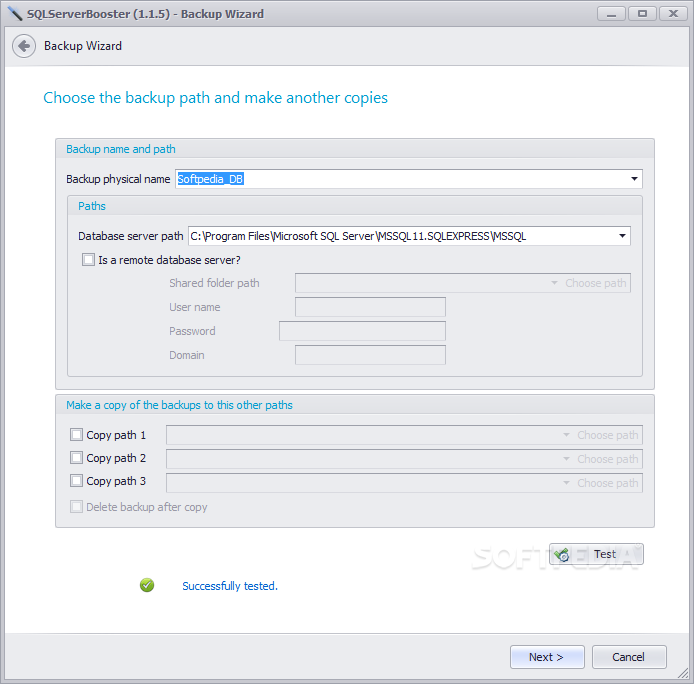HeidiSQL is a powerful, easy to use tool for managing most of the popular databases, including MySQL, MariaDB, PostgreSQL, SQL Server, and SQLite. The lightweight, free, open-source tool allows you to browse, see, create and edit data, tables, procedures, structures, and a wide range of parameters on database systems.
|
| |||||||||||||||||||||||||||||||
| Disclaimer: This webpage is intended to provide you information about silent installation/uninstallation switches for software/applications. The information is provided 'As Is' without warranty of any kind. The links provided point to pages on the vendors' websites. You can get more information by clicking the links to visit the relevant pages on the vendors' websites. Desktop Central is NOT endorsed by any of those vendors. | ||||||||||||||||||||||||||||||||
[KB7303] SQL Server Native Client 11.0 error messages received in Application Event Log in ESET File Security (7.x)
Issue
- You received the 'SQL Server Native Client 11.0: Unable to load sqlnclir11.rll due to either missing file or version mismatch. The application cannot continue.' error message in the Application Event Log every 30 minutes
- You may be receiving these errors after upgrading ESET File Security for Mircosoft Windows Server from version 6.x to 7.x
Solution
Keep Microsoft SQL Server up-to-date
We recommend that you always keep your Microsoft SQL Server up-to-date with the latest Service Pack and Cumulative Update. Refer to the Update Center for Microsoft SQL Server for the list of latest updates.

If you are receiving these messages, you can choose to ignore them since they do not represent an issue for your system.
You can also disable these messages from appearing in your Application Event Log.
In ESET File Security for Microsoft Windows Server, disable automatic exclusions. The actual exclusion sets will remain, but they will not regenerate automatically.
Remove the existing exclusions for Microsoft SQL Server.
Specify new file exclusions and processes exclusions manually. For detailed information about exclusions for Microsoft SQL Server, see the following article (section Directories and file name extensions to exclude from virus scanning and Processes to exclude from virus scanning)
Automatic exclusions should not be enabled after making these changes. Otherwise, the default set of exclusions from SQL Server will regenerate and the issue will remain.